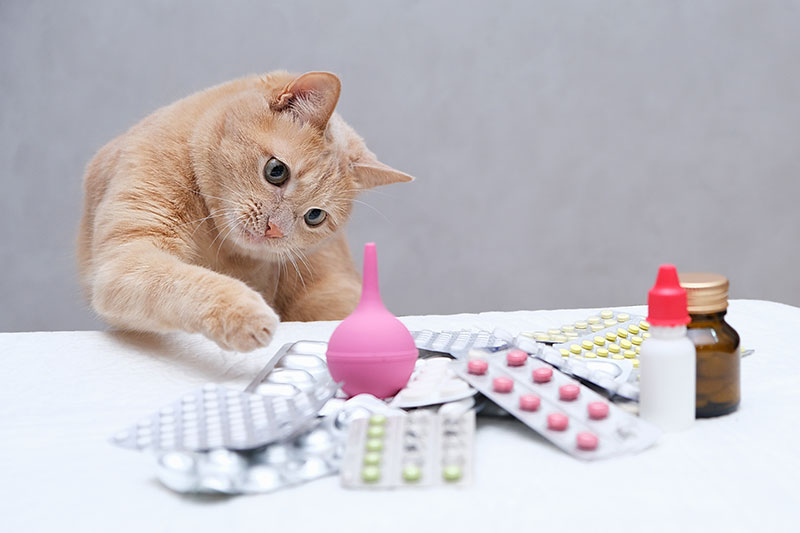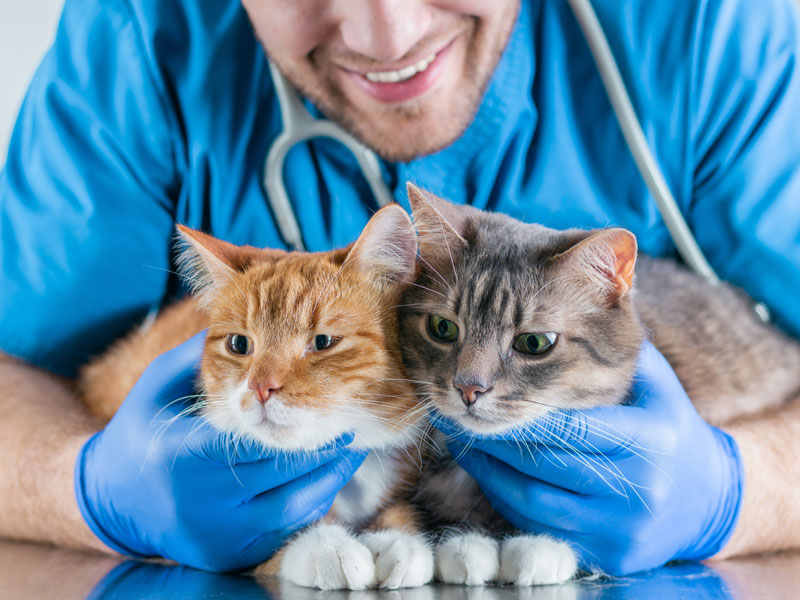Poison Prevention Month: How to Recognize Poison Ingestion in Pets
March is Pet Poison Prevention Month, a time to raise awareness about the potential hazards of everyday items in our homes that can be toxic to our furry friends. Unfortunately, pets are naturally curious creatures and may explore their surroundings by putting things in their mouths, leading to accidental poison ingestion. As a pet owner, it is crucial to be aware of the signs and symptoms of poisoning and take prompt action if you suspect your pet has ingested something toxic. In this blog, we will discuss the signs and symptoms of poison ingestion and how you can treat it using medications used in the veterinary industry.


Signs and Symptoms of Poison Ingestion
- Vomiting
- Diarrhea
- Excessive drooling
- Lack of appetite
- Lethargy
- Difficulty breathing
- Seizures
- Tremors
- Abdominal pain
- Pale gums
- Unusual behavior
Treatment of Poison Ingestion or Sickness with Veterinary Medications
Activated Charcoal – This medication is used to bind and absorb toxins, preventing them from being absorbed into the bloodstream.
Antiemetics – These medications are used to control vomiting and nausea, which can help prevent dehydration and further damage to the digestive tract.
IV Fluids – Fluid therapy may be necessary to treat dehydration caused by vomiting and diarrhea and to support organ function.
Anticonvulsants – If your pet experiences seizures due to poisoning, your veterinarian may prescribe anticonvulsants to help control them.


Caring For Your Pet With The Help Of VetMedics Compounding Pharmacy in New York
VetMedics Compounding Pharmacy is an excellent resource for pet owners and veterinarians. Traditional treatments may not always be effective or may not be suitable for your pet, and in such cases, we can help by creating custom medications tailored to your pet’s specific needs.
At VetMedics Compounding Pharmacy we work closely with veterinarians and pet owners to ensure that their pets receive the best possible care. Our expert team of pharmacists can customize medications to meet your pet’s individual needs and provide consultations to help you understand the best treatment options available. Call us today or click here to schedule a consultation with someone from our team!
 ACCOUNT LOGIN
ACCOUNT LOGIN ACCOUNT SIGN-UP
ACCOUNT SIGN-UP





 CLINIC LOGIN
CLINIC LOGIN